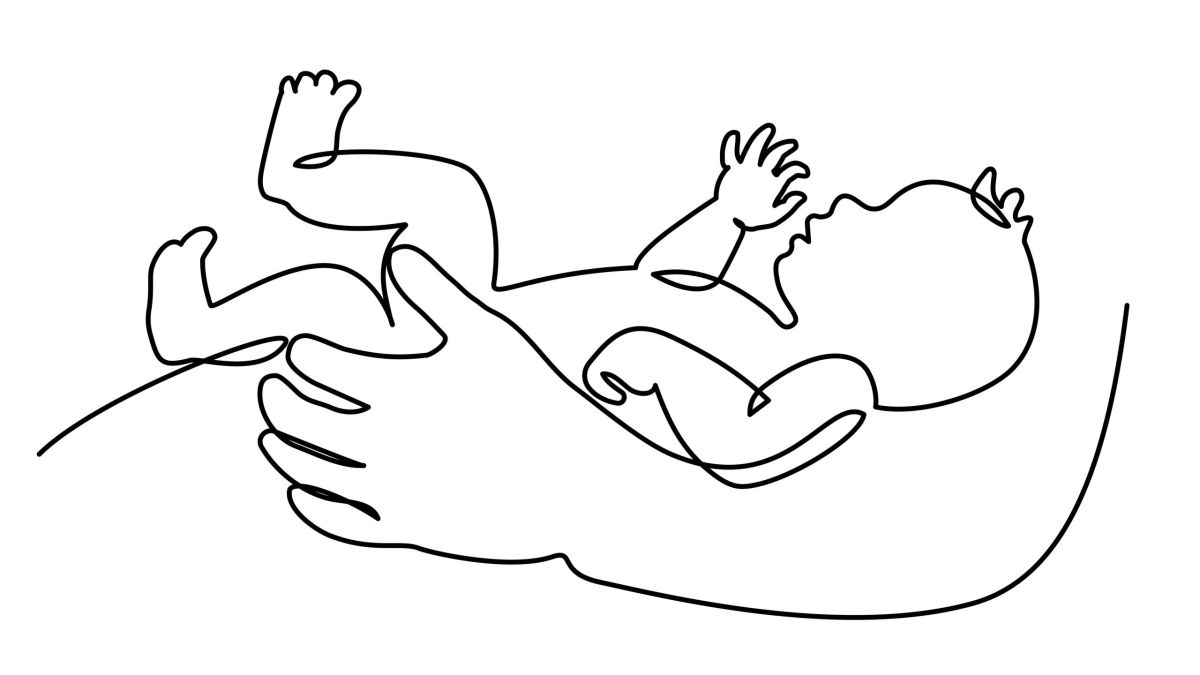Naming a Child Conceived from Adultery or Fornication
Dr. Abū Wāʾil Musa Shaleem


A legitimate child—one who is conceived from a lawful Islamic relationship, like marriage—ascribes to his father’s lineage. Therefore, the child is called, for example, Khālid son of Dāwūd or Fāṭimah daughter of Dāwūd. Allāh said:
ادْعُوهُمْ لِآبَائِهِمْ هُوَ أَقْسَطُ عِندَ اللَّهِ
“Call them after their fathers. This is more just before Allāh.”
[Al-Aḥzāb, 33:5]
Also, the Prophet (ﷺ) said: “Whoever knowingly claims to be the son of anyone other than his real father has disbelieved.”1
Furthermore, the Prophet (ﷺ) said: “If any child or slave ascribes to other than his father or his master, then the curse of Allāh, the Angels, and all of humanity will be upon him.”2
This divine legislation would suggest that an illegitimate child—one who is conceived from an unlawful Islamic relationship, such as a boyfriend-girlfriend relationship—is prohibited from ascribing to his biological father’s lineage. The specifics of this deduction which is the focal point of this discussion will be proven and discussed momentarily.
Having unlawful intercourse is a despicable sin and is considered one of the worst major sins in Islām. Allāh said:
وَلَا تَقْرَبُوا الزِّنَىٰ ۖ إِنَّهُ كَانَ فَاحِشَةً وَسَاءَ سَبِيلًا
“Distance yourself from unlawful intercourse. It is truly an immoral deed and an evil act.”
[Al-Isrāʾ, 17:32]
Allāh also said:
الزَّانِيَةُ وَالزَّانِي فَاجْلِدُوا كُلَّ وَاحِدٍ مِّنْهُمَا مِائَةَ جَلْدَةٍ ۖ وَلَا تَأْخُذْكُم بِهِمَا رَأْفَةٌ فِي دِينِ اللَّهِ إِن كُنتُمْ تُؤْمِنُونَ بِاللَّهِ وَالْيَوْمِ الْآخِرِ ۖ وَلْيَشْهَدْ عَذَابَهُمَا طَائِفَةٌ مِّنَ الْمُؤْمِنِينَ
“As for the male and the female fornicator, then lash each of them one hundred times. And if you truly believe in Allāh and the Last Day, do not allow their pity to make you become lenient in enforcing Allāh’s laws. And let some of the believers witness their punishment.”
[Al-Nūr, 24:2]
Furthermore, Allāh described His slaves saying:
وَالَّذِينَ لَا يَدْعُونَ مَعَ اللَّهِ إِلَٰهًا آخَرَ وَلَا يَقْتُلُونَ النَّفْسَ الَّتِي حَرَّمَ اللَّهُ إِلَّا بِالْحَقِّ وَلَا يَزْنُونَ ۚ وَمَن يَفْعَلْ ذَٰلِكَ يَلْقَ أَثَامًا يُضَاعَفْ لَهُ الْعَذَابُ يَوْمَ الْقِيَامَةِ وَيَخْلُدْ فِيهِ مُهَانًا
“They are those who do not invoke any other god besides Allāh, nor take a human life—made sacred by Allāh—without legal right, nor commit unlawful intercourse. And whoever does any of this will face the penalty. Their punishment will be multiplied on the Day of Judgment, and they will disgracefully reside in Hell forever.”
[Al-Furqān, 25:68-69]
Additionally, ʿAbdullāh ibn Masʿūd (رضي الله عنه) reported:
I asked Allāh’s Messenger (ﷺ): “What is the greatest sin? He replied: “To associate a partner with Allāh even though He created you is the greatest sin.” I said: “Which sin is next?” The Messenger (ﷺ) replied: “Killing your child fearing that he shall consume some of your provisions is next.” I said: “Which sin is next?” The Messenger (ﷺ) replied: “Committing adultery with your neighbour’s wife is next.”3
Therefore, if two individuals had unlawful intercourse, they must repent immediately if they are Muslims. If a child was conceived during this illegal act, he must be named appropriately unlike the legitimate child who always ascribes to his father’s lineage. The specifics of the illegitimate child’s lineage are as follows:
1. If the Child’s Mother Was Married when the Act Was Committed
In this case, the child must carry her husband’s name, even if she is certain that her husband is not the child’s father, since her husband is usually her children’s father. The Prophet (ﷺ) said: “The child belongs to the owner of the bed [i.e. the husband].”4 However, if her husband renounces this child in the presence of an Islamic judge or anyone else who functions as an Islamic judge—such as an imām—the child must carry his mother’s name, even if she has a non-Muslim name. The Prophet (ﷺ) said: “The child cannot be named after his father [i.e. his mother’s husband] if the man whom the child claims to be his father fails to acknowledge him as his son.”5
The Permanent Fatwá Committee stated: “If a married woman becomes pregnant from adultery, the child must ascribe to her husband, as was stated in the Ḥadīth. However, if the husband wants to reject the child, he can do so in the presence of an Islamic judge.”6
2. If the Child’s Mother Was Single when the Act Was Committed
In this case, the child must take his mother’s name, even if she has a non-Muslim name, since the Prophet (ﷺ) said: “The child belongs to the owner of the bed [i.e. the husband],”7 and she does not share her bed with anyone because she is unmarried. Therefore, the child must take her name.
The Messenger (ﷺ) also said: “If the child was born to a slave woman whom his father did not own or to a free woman with whom the father had unlawful intercourse, then the child cannot be named after the father, nor can the child inherit from the father, even if the man whom the child claims to be his father acknowledges the child as his son. The child is an illegitimate child who belongs to his mother’s people.”8
Shaykh Ibn Bāz (رحمه الله) was asked: “A Muslim boy wants to marry a Christian girl. She is pregnant because they live as if they are married. This occurs frequently in the Western Hemisphere. What should they do?”
The Shaykh (رحمه الله) responded: “If they repent sincerely, they can get married after the child’s birth. The child must bear the girl’s name because the child resulted from an illegal act. However, if they both fail to repent, they cannot get married.”9
3. If the Child Was Conceived When the Father or Both Parents Were Non-Muslims
Once the father embraces Islām, the child can take his father’s name, since the aforementioned laws only apply to Muslims, and this child was conceived when the father or the parents were non-Muslims. Therefore, the child can take his father’s name.
Furthermore, ʿUmar ibn al-Khaṭṭāb (رضي الله عنه) was reported to ascribe the illegitimate children who were born during the time of pre-Islamic ignorance to the fathers who embraced Islām. Sulaymān ibn Yasār (رحمه الله) narrated: “ʿUmar ibn al-Khaṭṭāb (رضي الله عنه) would ascribe the children who were born during the time of pre-Islamic ignorance to the fathers who accepted Islām and claimed the children as their rightful offspring.”10 This verdict applies presently to a convert claiming ownership of an illegitimate child conceived when he was a non-Muslim.
Commenting on ʿUmar ibn al-Khaṭṭāb’s (رضي الله عنه) statement, Ibn al-ʿArabī (d. 543 AH) (رحمه الله) said: “Our scholars [i.e. the Mālikī scholars] say: ‘Those children were a product of unlawful intercourse, and this verdict applies presently if a Christian or a Jewish convert claims ownership of an illegitimate child conceived when they were non-Muslim.’ Ibn Muzayn (رحمه الله) said: ‘Does the same verdict apply presently to a convert?’ He said: ‘Yes.’”11
Therefore, the child who was conceived during unlawful intercourse must carry the appropriate name. If, however, the child’s mother fears that her child may be treated wrongfully because he may be recognised as a product of illegal intercourse because he bears her name, she may give him the last name ʿAbdullāh or ʿAbd al-Raḥmān.
Shaykh Ibn Bāz (رحمه الله) said: “The child must take his mother’s name, or he can take the last name ʿAbdullāh or ʿAbd al-Raḥmān, since we are all Allāh’s slaves. Therefore, he can be called Fulān son of Fulānah, or Fulān son of ʿAbdullāh, or Fulān son of ʿAbd al-Raḥmān.”12
The Muslim community must not shun an illegitimate child, nor defame him; rather, they should treat him as they would treat any other Muslim child, for this child did not commit a crime. His biological parents did, and he himself does not have to pay for their crime. Allāh said:
وَلَا تَزِرُ وَازِرَةٌ وِزْرَ أُخْرَىٰ
“No person will bear another person’s sins.”
[Al-Anʿām, 6:164]
Shaykh Ibn Bāz (رحمه الله) mentioned: “The Muslims should treat the child well. His [biological] parents committed the crime, not him.”13
As for the child’s first name, then any regular first name—like Jamāl, Sālim, or Āminah—will suffice.
This discussion clearly illustrates how Islām cultivates the formation and growth of only lawful relationships, prohibits and severs the formation of unlawful relationships, and preserves the Muslims’ lineage and ancestry, since illegitimate children are generally prohibited from ascribing to their biological fathers’ lineage.
Endnotes:
- Reported by al-Bukhārī (3508) and Muslim (61)).
- Reported by Ibn Mājah (2609), and Shaykh al-Albānī graded it authentic.
- Reported by al-Bukhārī ((6001) and (6811)) and Muslim (141).
- Reported by al-Bukhārī ((2053) and (2218)) and Muslim ((1457) and (1458)).
- Reported by Abū Dāwūd (2265) and Ibn Mājah (2746), and Shaykh al-Albānī graded it authentic.
- Fatāwá al-Lajnah al-Dāʾimah, vol. 20, pg 339.
- Reported by al-Bukhārī ((2053) and (2218)) and Muslim ((1457) and (1458)).
- Reported by Abū Dāwūd (2265) and Ibn Mājah (2746). Shaykh al-Albānī deemed it authentic, and this is Ibn Mājah’s wording.
- Majmūʿ Fatāwá Ibn Bāz, vol. 21, pg. 206.
- Reported by Mālik in Al-Muwaṭṭaʾ (2738) and al-Bayhaqī in al-Kubrá (21263).
- Al-Masālik Fī Ṣharḥ Muwaṭṭaʾ Mālik, vol. 6, pg. 383.
- حكم انتساب ولد الزنا إلى الزاني بعد زواجه بالزانية
- أحكام ولد الزنا
Most Popular: Last 30 Days

















